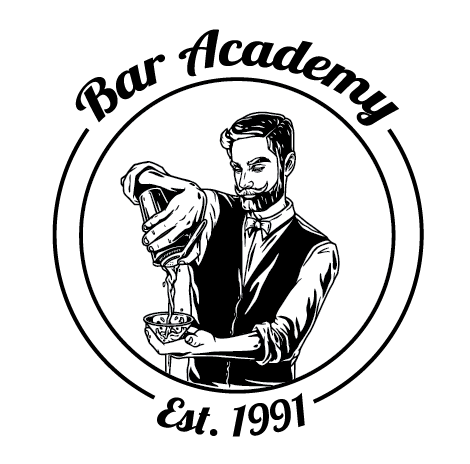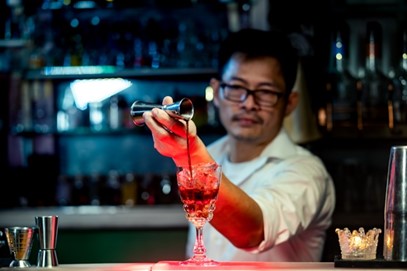Bartending is more than just mixing drinks, serving customers, or even mastering the perfect cocktail during a mixology class—it’s an art and a responsibility. In every bar or restaurant, bartenders play a crucial role in ensuring customers have a safe, enjoyable experience while also maintaining a secure and legally compliant environment. One of the most important aspects of responsible bartending is managing alcohol consumption and preventing over-serving. A key tool in achieving this is T.I.P.S. (Training for Intervention Procedures) certification, which equips bartenders with the knowledge and skills necessary to handle intoxicated patrons, reduce risks, and protect both themselves and their employers from legal consequences.
Understanding T.I.P.S. Certification
T.I.P.S. is a nationally recognized program designed to teach bartenders, servers, and other hospitality staff how to responsibly serve alcohol and identify signs of intoxication. It covers essential topics such as how to refuse service to overly intoxicated patrons, how to assess when a guest has had too much to drink, and how to intervene in a professional manner to prevent potential harm. By promoting safer alcohol consumption and providing bartenders with effective strategies for intervention, this certification helps reduce alcohol-related incidents, ensuring a safer environment for everyone involved.
Courses typically include both classroom and online training modules, with a focus on practical skills and real-life scenarios. The program has proven effective in helping bars and restaurants improve their service practices and lower the risk of accidents, injuries, or legal issues. For bartenders, being T.I.P.S. certified is not just a credential; it’s a critical tool for success in the hospitality industry.
Managing Intoxication
One of the most essential skills bartenders gain is how to recognize signs of intoxication in customers. Bartenders are often the first line of defense in identifying when a patron has had too much to drink. They are trained to look for behavioral cues such as slurred speech, unsteady movement, and impaired judgment. By being able to spot these early signs, barkeeps can take action to prevent further alcohol consumption before a situation escalates.
For example, imagine a customer who begins to slur their words and is visibly stumbling. A trained bartender would recognize this as a sign of intoxication and would know to stop serving that individual. In addition to physical cues, T.I.P.S. training also emphasizes the importance of recognizing behavioral changes, such as aggression, excessive loudness, or overly flirtatious behavior, all of which can indicate that a patron is becoming intoxicated.
By spotting inebriation early, a taproom attendant can intervene before it leads to dangerous situations, such as drunk driving or altercations with other guests. T.I.P.S. certification teaches bartenders to intervene professionally, offering alternatives such as water or non-alcoholic beverages, and suggests ways to encourage customers to slow down or stop drinking without causing offense.
Refusing Service
Refusing service to an intoxicated guest can be one of the most challenging aspects of tending bar. Many patrons may become upset or argumentative when told they can no longer have another drink, however, proper training prepares bartenders to handle these situations with tact and professionalism. The program stresses the importance of clear communication, polite refusal, and maintaining a calm demeanor in the face of customer frustration.
For example, a bartender might encounter a guest who insists on having another drink despite showing clear signs of intoxication. With T.I.P.S. certification, the bartender would be trained to politely explain that for the safety and well-being of the guest, they are unable to serve them any more alcohol. By remaining calm and respectful, the bar keep can de-escalate the situation, ensuring that the guest understands the refusal is for their own protection.
T.I.P.S. also emphasizes the importance of being consistent in enforcing these rules. When refusing service to one customer, it’s crucial that they apply the same standards to other patrons to avoid accusations of discrimination. The program reinforces the idea that refusal of service is not personal; it’s a professional responsibility to ensure the safety of everyone at the establishment.

Legal and Financial Liability
Bartenders and their employers face significant legal and financial risks if they serve alcohol to someone who is already intoxicated. Laws vary by state, but in many places, business owners and those tending bar can be held liable for accidents or injuries that result from over-serving guests. For instance, if a customer who has been drinking and subsequently causes a car accident, both the bartender and the establishment could be held legally accountable for the damages. This could lead to costly lawsuits, insurance claims, and even the loss of liquor licenses.
T.I.P.S. certification provides bartenders with the knowledge they need to protect themselves and their employers from such legal risks. By adhering to the principles of responsible serving, demonstrates that they have taken reasonable steps to prevent intoxication and reduce the likelihood of accidents. In many cases, a T.I.P.S.-certified employee can serve as a strong defense if a legal issue arises, as they can show they followed proper protocols to prevent over-serving.
Additionally, by adhering to responsible serving practices, bartenders can help create a positive reputation for their establishment. Establishments that prioritize the safety of their customers are more likely to attract loyal patrons who value a safe and enjoyable drinking environment. This can lead to higher customer satisfaction, better reviews, and increased business.
Conclusion
Responsible bartending is essential not only for the safety and well-being of patrons but also for the success and longevity of the establishment. T.I.P.S. certification equips servers with the tools they need to manage intoxication, refuse service when necessary, and protect themselves and their employers from legal liability. By investing in this specialized training, bars and restaurants can create a safer environment for both customers and staff, ultimately enhancing the reputation of the business and reducing the risk of alcohol-related incidents. In an industry where every decision counts, responsible bartending is a vital skill that all mixologists should master.

